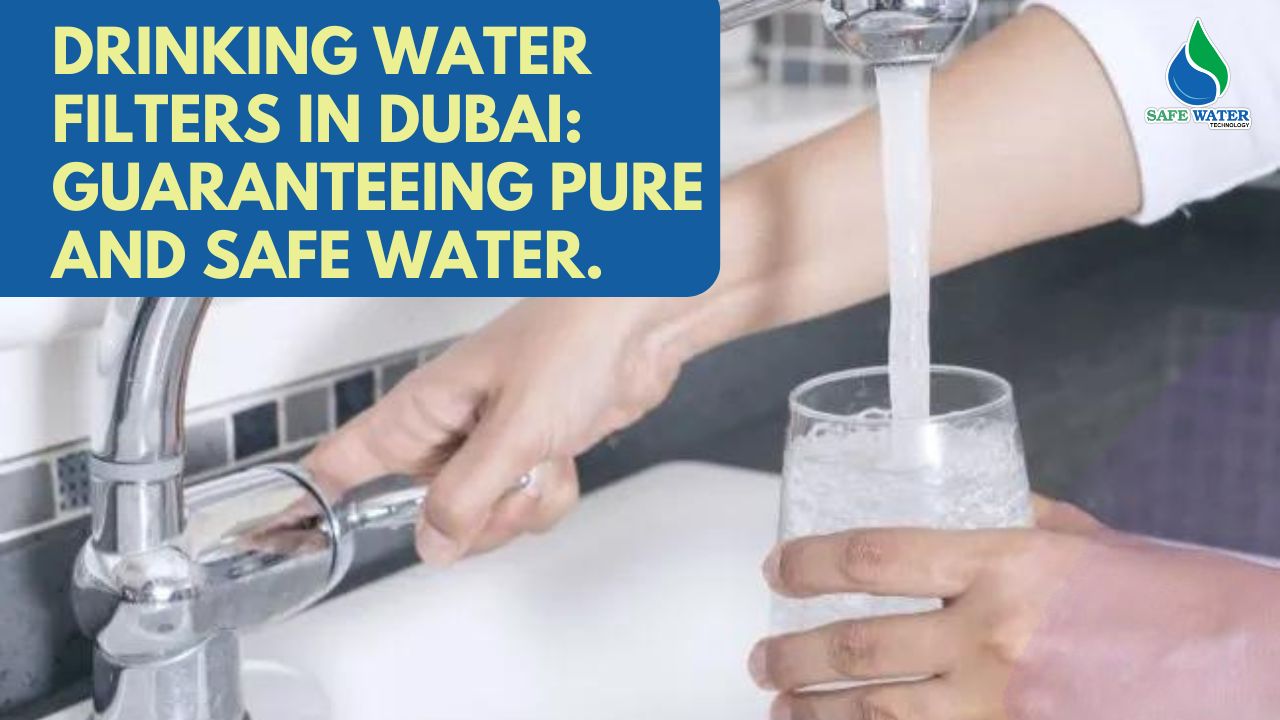Dubai, a city known for its towering skyscrapers and luxurious lifestyle, also faces unique challenges when it comes to water quality. The primary source of water in Dubai is desalinated seawater, which undergoes extensive treatment before it reaches households. Despite these efforts, concerns about water safety, taste, and potential contaminants make drinking water filters an essential consideration for residents.
The Importance of Water Filtration in Dubai
Dubai’s water supply is largely dependent on desalination, a process that removes salt and other impurities from seawater. While desalination is effective in providing potable water, it does not eliminate all contaminants. Trace amounts of chlorine, heavy metals, and other substances can still be present in the water, potentially affecting its taste and quality. Moreover, the extensive piping network that delivers water to homes may introduce further impurities, making water filtration a necessary step for many households.
Using a drinking water filter ensures that any remaining contaminants are removed, providing residents with clean, safe water that not only meets but exceeds the standards set by health authorities. This is particularly important in a city like Dubai, where the climate is hot and arid, increasing the need for reliable access to high-quality drinking water.
Types of Drinking Water Filters Popular in Dubai
Several types of water filtration systems are popular among Dubai residents, each offering different levels of filtration and benefits:
1. Activated Carbon Filters:
These filters are highly effective at removing chlorine, sediment, and volatile organic compounds (VOCs) from water, which can affect the taste and odor. Activated carbon filters are commonly used in both point-of-use (e.g., faucet-mounted) and point-of-entry systems.
2. Reverse Osmosis (RO) Systems:
Reverse osmosis is one of the most comprehensive filtration methods available, capable of removing a wide range of contaminants, including heavy metals, fluoride, and microorganisms. RO systems are particularly popular in Dubai due to their effectiveness in ensuring the purity of desalinated water.
3. Ultraviolet (UV) Filters:
UV filters are primarily used to kill bacteria, viruses, and other pathogens that may be present in water. These filters are often combined with other filtration methods, such as RO, to provide a multi-stage defense against contaminants.
4. Alkaline Filters:
Alkaline water filters not only purify water but also increase its pH level, making it more alkaline. This type of water is believed to offer several health benefits, including better hydration and detoxification.
5. Sediment Filters:
Sediment filters are designed to remove larger particles such as sand, silt, and rust from water. These filters are often used as a pre-filter in combination with other filtration systems to prolong their lifespan.
Choosing the Right Water Filter in Dubai
When selecting a water filter, it’s important to consider the specific needs of your household and the quality of the water being supplied to your area. Some key factors to consider include:
– Water Quality: Conducting a water quality test can help determine the types of contaminants present in your tap water, guiding your choice of filter.
– Filter Capacity: Depending on the size of your household and your daily water usage, you may need a filter with a higher capacity to ensure a continuous supply of clean water.
– Maintenance: Different filters have varying maintenance requirements. For example, RO systems require regular filter changes and maintenance checks, while activated carbon filters may need less frequent replacement.
– Installation: Some filters are designed for easy DIY installation, while others, particularly whole-house systems, may require professional installation.
Frequently Asked Questions (FAQs)
1. Is tap water safe to drink in Dubai without a filter?
While tap water in Dubai meets international safety standards, using a filter can improve taste and remove any remaining impurities, providing added peace of mind.
2. How often should I replace my water filter?
The replacement frequency depends on the type of filter and the level of usage. Generally, filters should be replaced every 2-6 months, though some RO systems may require annual maintenance.
3. Can I install a water filter myself?
Many point-of-use filters are designed for easy DIY installation. However, more complex systems, like whole-house filters or RO units, may require professional help.
4. Are there health benefits to using an alkaline water filter?
Alkaline water filters increase the pH of water, which some believe offers health benefits like improved hydration and detoxification. However, scientific evidence on these benefits is still inconclusive.
5. Do water filters affect the taste of water?
Yes, most water filters improve the taste by removing chlorine and other chemicals that can cause an unpleasant taste or odor.
Conclusion
In a city like Dubai, where water quality is influenced by desalination and extensive distribution networks, investing in a drinking water filter is a wise decision. Whether you choose an activated carbon filter for basic purification or a reverse osmosis system for comprehensive filtration, ensuring that your household has access to clean, safe drinking water is essential. With the right filter, you can enjoy water that not only meets safety standards but also tastes fresh and pure, contributing to your overall health and well-being.
Enjoy pure, refreshing water daily by upgrading your home with our advanced drinking water filter—your gateway to cleaner, healthier hydration. Call +971 4 256 4492 today and savor the peace of mind with every sip.
